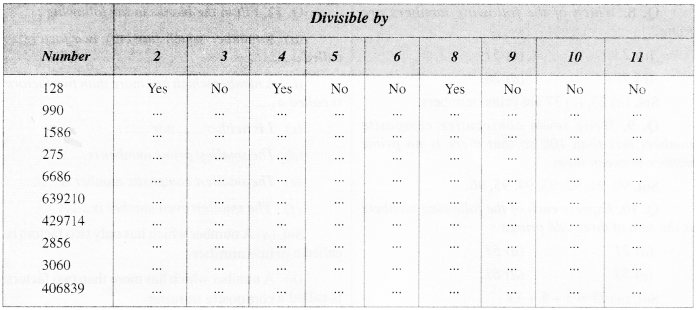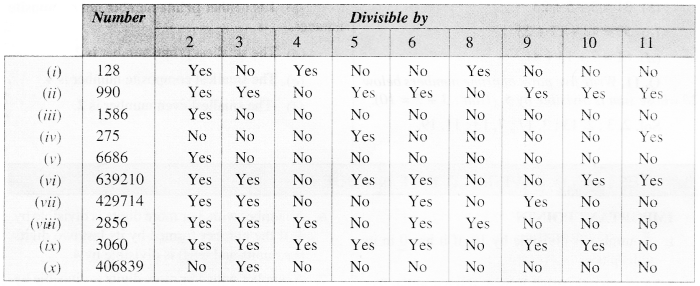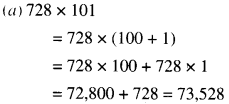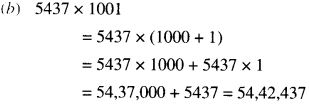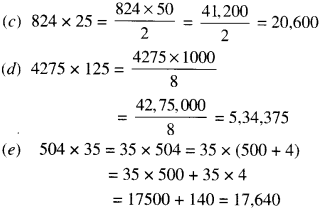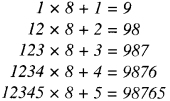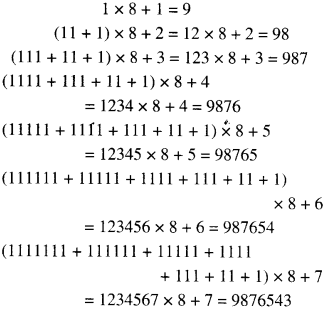NCERT Solutions for Class 6 Maths Chapter 3 Playing With Numbers Ex 3.4 are part of NCERT Solutions for Class 6 Maths. Here we have given NCERT Solutions for Class 6 Maths Chapter 3 Playing With Numbers Ex 3.4. https://mcqquestions.guru/ncert-solutions-for-class-6-maths-chapter-3-ex-3-4/
- Playing With Numbers Class 6 Ex 3.1
- Playing With Numbers Class 6 Ex 3.2
- Playing With Numbers Class 6 Ex 3.3
- Playing With Numbers Class 6 Ex 3.5
- Playing With Numbers Class 6 Ex 3.6
- Playing With Numbers Class 6 Ex 3.7
| Board | CBSE |
| Textbook | NCERT |
| Class | Class 6 |
| Subject | Maths |
| Chapter | Chapter 3 |
| Chapter Name | Playing With Numbers |
| Exercise | Ex 3.4 |
| Number of Questions Solved | 7 |
| Category | NCERT Solutions |
NCERT Solutions for Class 6 Maths Chapter 3 Playing With Numbers Ex 3.4
Question 1.
Find the common factors of:
(a) 20 and 28
(b) 15 and 25
(c) 35 and 50
(d) 56 and 120.
Solution :
(a) 20 and 28
Factors of 20 are 1, 2,4, 5, 10 and 20.
Factors of 28 are 1, 2,4, 7, 14 and 28.
Hence, the common factors of 20 and 28 are 1, 2 and 4.
(b) 15 and 25
Factors of 15 are 1, 3, 5 and 15.
Factors of 25 are 1, 5 and 25.
Hence, the common factors of 15 and 25 are 1 and 5.
(c) 35 and 50
Factors of 35 are 1, 5, 7 and 35.
Factors of 50 are 1, 5, 10, 25 and 50.
Hence, the common factors of 35 and 50 are 1 and 5.
(d) 56 and 120
Factors of 56 are 1, 2,4, 7, 8, 14, 28 and 56. Factors of 120 are 1, 2, 3,4, 5, 6, 8,10, 12,15, 20, 24, 30,40, 60 and 120. ,
Hence, the common factors of 56 and 120 are 1, 2,4 and 8.
Question 2.
Find the common factors of:
(a) 4, 8 and 12
(b) 5, 15 and 25.
Solution :
(a) 4,8 and 12 Factors of 4 are 1,2 and 4.
Factors of 8 are 1, 2,4 and 8.
Factors of 12 are 1, 2, 3,4,6 and 12.
Hence, the common factors of 4,8 and 12 are 1, 2 and 4.
(b) 5,15 and 25
Factors of 5 are 1 and 5.
Factors of 15 are 1, 3 and 5.
Factors of 25 are 1,5 and 25.
Hence, the common factors of 5,15 and 25 are 1 and 5.
Question 3.
Find the first three common multiples of:
(a) 6 and 8
(b) 12 and 18.
Solution :
(a) 6 and 8
Multiples of 6 are 6, 12, 18, 24, 30, 36, 42, 48, 54, 60, 66, 72,78, 84,90,96,
Multiples of 8 are 8, 16, 24, 32, 40, 48, 56, 64, 72, 80, 88, 96
Common multiples of 6 and 8 are 24, 48, 72, 96,
∴ First three common multiples of 6 and 8 are 24, 48 and 72.
(b) 12 and 18
Multiples of 12 are 12, 24, 36, 48, 60, 72, 84, 96, 108, 120, 132, 144, *
Multiples of 18 are 18,36,54,72,90,108,126, 144,
∴ Common multiples of 12 and 18 are 36, 72,108, 144,
∴ First three common multiples of 12 and 18 are 36, 72 and 108.
Question 4.
Write all the numbers less than 100 which are common multiples of 3 and 4.
Solution :
Multiples of 3 are : 3, 6, 9, 12, 15, 18, 21, 24, 27, 30, 33, 36, 39, 42, 45, 48, 51, 54, 57, 60, 63, 66, 69, 72, 75, 78, 81, 84, 87, 90, 93, 96, 99, 102, 105, 108,
Multiples of 4 are : 4, 8, 12, 16, 20, 24, 28, 32, 36, 40, 44, 48, 52, 56, 60, 64, 68, 72, 76, 80, 84, 88, 92, 96, 100, 104, 108,
Common multiples of 3 and 4 are : 12, 24, 36, 48, 60, 72, 84, 96, 108,
∴ All the numbers less than 100 which are common multiples of 3 and 4 are 12, 24, 36, 48, 60, 72, 84 and 96.
Question 5.
Which of the following numbers are co-prime :
(a) 18 and 35
(b) 15 and 37
(c) 30 and 415
(d) 17 and 68
(e) 216 and 215
(f) 81 and 16.
Solution :
(a) 18 and 35
Factors of 18 are 1, 2, 3, 6, 9 and 18.
Factors of 35 are 1, 5, 7 and 35.
∴ A common factor of 18 and 35 is 1.
∴ 18 and 3 5 have only 1 as the common factor
∴ 18 and 35 are co-prime numbers.
(b) 15 and 37
Factors of 15 are 1, 3, 5 and 15.
Factors of 37 are 1 and 37.
∴ A common factor of 15 and 37 is 1. v 15 and 37 have only 1 as the common factor ∴ 15 and 37 are co-prime numbers.
(c) 30 and 415
Factors of 30 are 1, 2, 3, 5, 6, 10, 15 and 30.
Factors of 415 are 1, 5, 83 and 415.
∴ Common factors of 30 and 415 are 1 and 5. v
∴ 30 and 415 have two common factors
∴ 30 and 45 are not co-prime numbers.
(d) 17 and 68 Factors of 17 are 1 and 17.
Factors of 68 are 1, 2, 4, 17, 34 and 68.
∴ Common factors of 17 and 68 are 1 and 17.
∴ 17 and 68 have two common factors
∴ 17 and 68 are not co-prime numbers.
(e) 216 and 215
Factors of 216 are 1,2, 3, 4, 6, 8, 9, 12, 18, 24, 27, 36, 54, 72, 108 and 216.
Factors of 215 are 1, 5 and 43
∴ A common factor of 216 and 215 is 1.
∴ 216 and 215 have only 1 as the common factor
∴ 216 and 215 are co-prime numbers.
(f) 81 and 16
Factors of 81 are 1, 3, 9, 27 and 81.
Factors of 16 are 1, 2, 4, 8 and 16.
∴ A common factor of 81 and 16 is 1.
∴ 81 and 16 have only 1 as the common factor
∴ 81 and 16 are co-prime numbers.
Question 6.
A number is divisible by both 5 and 12. By which other numbers will that number be always divisible?
Solution :
The number will be always divisible by 5 × 12 = 60.
Question 7.
A number is divisible by 12. By what other numbers will that number be divisible?
Solution :
Factors of 12 are 1, 2, 3, 4, 6 and 12. So, that number will be divisible by other numbers 1, 2, 3, 4 and 6.
We hope the NCERT Solutions for Class 6 Maths Chapter 3 Playing With Numbers Ex 3.4 help you. If you have any query regarding NCERT Solutions for Class 6 Maths Chapter 3 Playing With Numbers Ex 3.4, drop a comment below and we will get back to you at the earliest.
